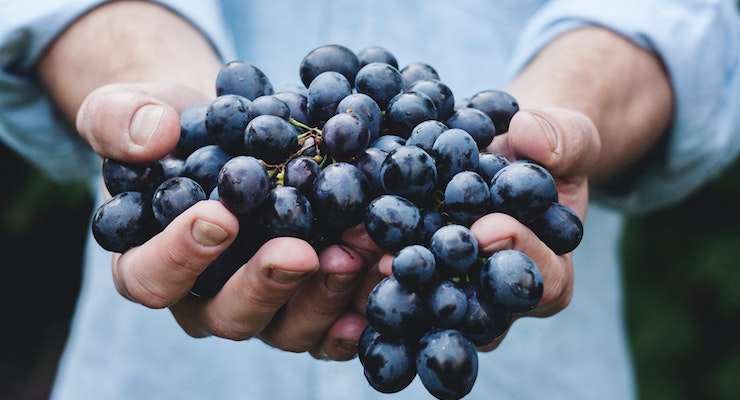Market Updates, Research
Long-Term Resveratrol Study Shown to Improve Bone Mineral Density in Women
Resveratrol’s ability to improve microcirculation to tissues resulted in a reduced 10-year hip and major fracture probability.

By: Mike Montemarano
Associate Editor, Nutraceuticals World

A recently-published study, one of many expected to emerge from a clinical trial called RESHAW (Resveratrol Supporting Healthy Aging in Women), which was published in the Journal for Bone and Mineral Research, found that Resveratrol’s propensity to benefit the microcirculation of blood to tissues in the human body was beneficial to improving bone mineral density in women suffering from osteoperosis.
Resveratrol is a naturally-occurring polyphenol found in red grapes and berries, along with other foods in more discrete amounts. It has been studied for bioactive effects including antitumor activity, along with anti-inflammatory, cardioprotective, vasorelaxant, phytoestrogenic, and neuroprotective effects.
The report is the second in a number of series of anticipated publications from an extensive clinical trial evaluating the benefits of resveratrol supplementation in 125 postmenopausal women.
In the crossover comparison, volunteers were randomized to either take two capsules containing 75 mg of Evolva’s Veri-te resveratrol ingredient daily or a matching placebo supplement for a year, followed by the alternate treatment for a year further.
Plasma levels of C-terminal telopeptide type-1 collagen were assessed due to the fact that they are considered a biomarker of age-related bone loss. It was found that resveratrol reduced the levels of this biomarker, pointing to the mechanism by which bone loss was significantly reduced among women taking the supplement versus placebo.
“We reported improved bone density in the lumbar spine and femoral neck of postmenopausal women, supported by a 7.2% relative reduction of plasma C-terminal telopeptide type-1 collagen, a marker of bone resorption,” Dr. Rachel Wong, who is leading the study, said. “When comparing the annual rate of decline of 0.96% in femoral neck bone mineral density in the elderly, the rate of decline of 0.34% in the femoral neck bone mineral density in the resveratrol group suggest the potential of resveratrol to reduce bone loss in aging women.”
“Participants with greater bone resorption at baseline showed a greater reduction of plasma C-terminal telopeptide type-1 collagen with resveratrol, suggesting a greater potential for resveratrol to improve bone formation in those individuals at risk of rapid bone loss,” Professor Peter Howe, a co-author of the study, said.
“The increase in bone mineral density in the femoral neck resulted in an improvement in T-Score and a reduction in the 10-year probability of major and hip fracture risk,” he continued. “These benefits were observed in postmenopausal women without osteoporosis, and a sub-analysis suggests that resveratrol could be used synergistically with calcium plus vitamin D supplements to further reduce the risk of total and hip fractures.”
RESHAW, which is being conducted in Australia at the University of Newcastle’s Clinical Nutrition Center, is the largest, longest-running study of its kind with resveratrol, supported by the National Health and Medical Research Council and the Australian Research Council, as well as by a grant from Evolva, the makers of resveratrol supplement Veri-te. RESHAW was designed to investigate the impact of resveratrol supplementation on body composition, including bone mineral density in critical regions, as well as to measure the biomarkers of bone metabolism. The first peer-reviewed publication reported cerebrovascular and cognitive benefits among the experimental group (the study evaluated blood pressure, arterial compliance, cerebrovascular function assessments, and cognitive performance before and after supplementation using a variety of methods for each). Researchers involved in RESHAW are currently evaluating a range of secondary outcomes including perceptions of wellbeing, physical function, and pain.




















